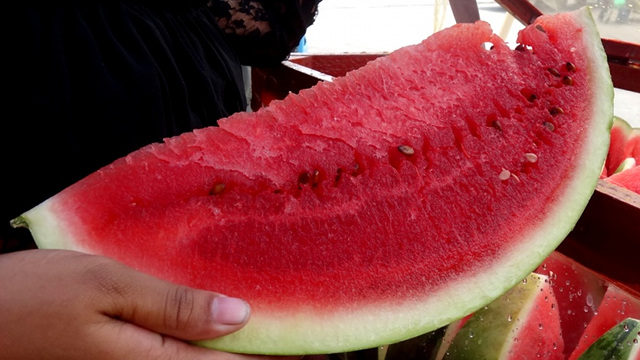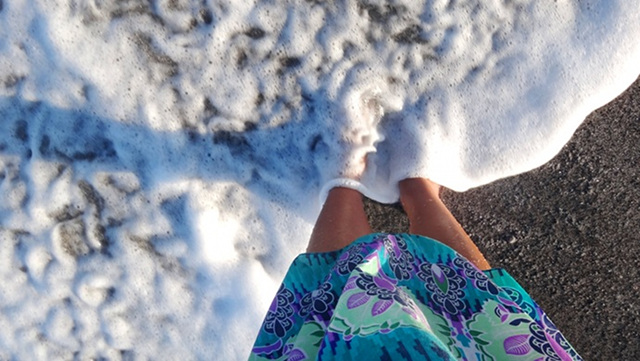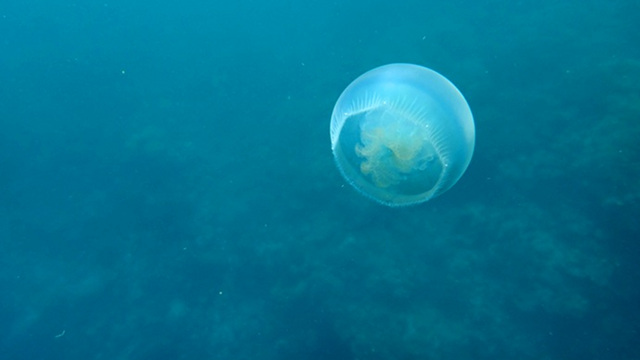SUMMARY
This is AI generated summarization, which may have errors. For context, always refer to the full article.

MANILA, Philippines – Can you swim on a full stomach? Does applying sunscreen with an SPF of 90 protect you better than one with an SPF of 30?
Here’s the lowdown on some common summer beliefs:
1. Don’t swim after eating
The premise here is that your muscles won’t work as well because your stomach is busy digesting and your blood is breaking down your meal.
But while you might feel a bit uncomfortable swimming on a full stomach, it is highly unlikely for you to be disabled and drown from a food-related cramp – if you even get one.
On the other hand, if your stomach feels bad and you are not confident going for a swim, just stay in shallow waters.
2. Sea water can heal your wounds

While your doctor may use a saline solution for your wound, rinsing your cuts or scrapes with sea water is not a good idea.
Doctors use a salt solution with clean water, not salt water from the sea which may actually have infection-causing bacteria.
If you have to go swimming, make sure you wash your wound with clean water and a mild soap afterwards.
3. You have to use sunscreen lotion with the highest SPF to protect your skin
True and false. SPF, which stands for sun protection factor, measures protection against ultraviolet B (UVB) rays, rays which cause sunburn. While a higher SPF means more protection, SPFs higher than 45 do not make much of a difference.
Here’s the math: according to US dermatologist James Spencer, an SPF 15 sunscreen blocks up to around 94% of UVB rays; SPF 30 blocks up to 97%; and SPF 45 blocks 98% of rays. Those higher than that offer slightly more protection, but none gives 100% protection.
And, whether your sunscreen is SPF 30 or 110, you should re-apply at least every two hours.
Here is more information about sunscreen and SPF:
4. The sudden cold when you enter an air-conditioned room when it’s hot outside will make you sick
You probably will feel sick – if you have allergies. This change in environment can trigger allergy sensitivities in some.
And, if the vent in your air conditioner is not clean, it may have mold in it that may worsen your allergies. Best to check your air conditioner every 6 months.
5. Urinating on a jellyfish sting will help soothe the pain
Peeing on that sting won’t assure relief, according to American emergency medicine physician Jennifer Ping. In fact, it can even make the pain worse.
There is some truth to this remedy, though, as the ammonia in urine can help soothe pain. But not all people have substantial ammonia in their urine to relieve a jellyfish sting.
Your best bet is rinsing the stung area with vinegar, a proven home remedy. (Wouldn’t you rather use vinegar than urine?)

6. Swallowing watermelon seeds can cause appendicitis
Eating watermelon is a nice way to cool down this summer. Some worry about swallowing the seeds, though, as they are believed to cause appendicitis.
Though your body can’t digest them, watermelon seeds actually pass through your body safely — but it is a good idea to hydrate to make things easier.
Some people actually fear that seeds can sprout in their stomachs. This is unlikely to happen, given the strength of the body’s digestive acids. – Rappler.com
Sources: http://www.webmd.com / http://articles.washingtonpost.com / http://health.yahoo.net / http://ideas.thenest.com

Claire Madarang is a writer, traveler, and seeker. Her wanderlust takes her on adventures like backpacking for 7 weeks straight. Her seeking leads her to different wellness practices like meditation and healthy (mostly vegetarian) eating. Follow her adventures, tips, and epiphanies at her blog, Traveling Light.
Add a comment
How does this make you feel?
There are no comments yet. Add your comment to start the conversation.